Photo Credit: Payton Ruddock, Ruddock Visuals
In a perfect world, marathon training goes something like this: (1) sign up for the race with ample lead time, (2) develop a training plan that optimizes the workload based on your unique running ability and goals, (3) execute the plan flawlessly, without injury and feel confident and prepared leading up to the week of the race, (4) race day arrives, it’s 50 degrees and cloudy with negligible wind, (5) everything clicks, you follow a well-defined race strategy to a “t”, you have the race of your life and set a new marathon Personal Record (PR).
My first marathon was substantially the opposite of the above: (1) I signed up with sufficient lead time – so far so good; (2) I chose a training plan I found online that took little to no consideration for how my body responds to mileage or speed workouts; (3) I executed the imperfect plan perfectly but found myself over-trained and underprepared; (4) there was an ice storm the day before the race and, in addition to the freezing temperatures and slick surfaces, much of the course was littered with fallen tree limbs causing last minute course changes; (5) I went into the race with little in the way of strategy, went out much faster than my potential at the time and hit the proverbial “wall” at mile 17, leaving me slogging through the remaining seemingly endless 9.2 miles.
My post-race reflection led me to three important conclusions (and lessons learned): (1) control the things you can control, (2) prepare (to the extent possible) for the ones you can’t and (3) Stuff will happen that you can’t even imagine right now but if you’re flexible and trust the process it’ll work out (mostly).
If you’ve committed to one of the races on January 14th — Congratulations! If you haven’t, pause reading, register now and restart this post from the top. Whether you’re running the Marathon or the Half Marathon, you’ve taken an important and commendable step: you’ve signed up. If and when you socialize your recent race commitment, your friends and family will likely react by asking your race goals and expect you to respond with a finish time. I challenge you to flip the script and, instead, focus your attention (and at least some of your goals) on the journey. Because let’s be real: the journey is where all the magic happens and accounts for over 99% of the time between now and when you cross that finish line on January 14th.
Despite all the planning, structure and preparation we put into readying ourselves for a race, the reality is that much of what happens on this marathon training journey over the next four months is completely unpredictable: weather impacting a planned long run, work “stuff” leaving us too exhausted for a track workout, family obligations, random aches and pains and a host of other “unknowns”. You’ll also encounter countless positive unknowns. You’ll meet new friends through training runs, intermittent races and post-run breakfasts. You’ll learn new routes, running spots and see parts of Houston you’ve never seen before. You’ll be exposed to new training methods and plans and have to assess the merits of them with respect to your own training. You’ll find yourself in conversations debating carb-heavy versus fat-adapted diets and wonder if you should eat that extra bowl of pasta or just inhale an avocado before your next long run. You’ll feel that “runner’s high” – a lot! Welcome to marathon training (and for you veterans, welcome back!).
The takeaway from all of this is that you should embrace the unknowns, whether positive or negative. Keep the perspective that no one day – or even week – will define your training or your success. Instead, it’s the running lifestyle that you’re committing to for the next 18 weeks (and hopefully well beyond that!) that will have you primed to toe the line in January. You’re starting this journey with thousands of other runners with varied backgrounds and levels of running experience. But you’re unified in that you’re all starting together. From your first long run to your taper in late December / early January and everything in between, you are tackling this journey alongside (metaphorically and, in many cases, literally) thousands of running friends. The running community is uniquely supportive, motivational and respectful. Leverage each other, inspire each other, motivate each other. #StrongerTogether
My second marathon experience was positive in almost every regard with one notable exception: the weather. It was 83 degrees at the starting line and 86 degrees at the finish line (about 25 degrees above average for that time of year in Boston). Despite proper training, mental and physical preparation and wisdom from my first marathon, I ran 14 minutes slower than my “disaster” first marathon. Sometimes, the things out of your control will dictate the outcome – and that’s okay. My first two sobering marathon experiences are not supposed to scare you, but to help you avoid the mistakes that are avoidable and embrace the unknown – because in a lot of cases, that’s what ultimately matters.
While it may seem counterintuitive, make a concerted effort to slow down every once in a while throughout the next few months. Remember to experience the journey and celebrate the small victories along the way, be it a long run that finally felt good or an interval workout that left you gasping for air but confident that your training is right on track (no pun intended). Don’t set yourself up for failure by letting race day be your only measure of success – there are plenty of checkpoints and indicators of progress well before race day. The 18-week journey that [25,000] Houstonians are collectively embarking on ends at the starting line on January 14th. The race itself is just the reward for successfully completing that journey.
See you out there, runner friends!
Jeff Douse is a first-time #HouMarathon ambassador and 2018 will be his inaugural Chevron Houston Marathon and fifth overall marathon. He is actively involved in the local Houston running community as a coach and co-founder of Houston’s first running studio, RacePace. He is also a lululemon run ambassador at the store in Highland Village. Jeff’s passion for running is backed by his hope of building a community centered around training and education that helps all levels of runners achieve their goals


Leave A Comment
You must be logged in to post a comment.